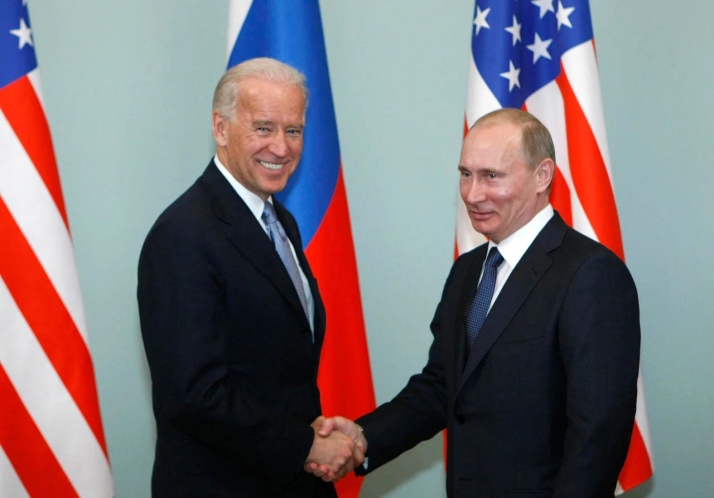
Russia says U.S. agreed to renew nuclear weapons pact “on our terms”
BY ALEXANDRA ODYNOVA
JANUARY 27, 2021 / 8:51 AM / CBS NEWS
Moscow — Russia’s parliament ploughed ahead on Wednesday to ratify a bill extending the New START nuclear arms control treaty with the United States after the first phone call between President Joe Biden and Vladimir Putin. The Kremlin announced on Tuesday that Russia and the U.S. had struck a deal to extend the treaty — the last arms control pact between the world’s two biggest nuclear powers — which is set to expire on February 5.
But Russia’s eager declaration that an agreement had been reached “on our terms” appeared to get slightly out ahead of the Biden administration’s assessment of circumstances.
The White House did not immediately react to the vote in the Russian parliament. A readout of the Biden-Putin phone call provided by the White House on Tuesday, however, said only that the presidents had “discussed both countries’ willingness to extend New START for five years, agreeing to have their teams work urgently to complete the extension by February 5.”
There was nothing after that statement from the White House to confirm that any agreement had been reached, suggesting the Biden administration could have at least been expecting a few more days of negotiation with Moscow before a formal announcement.
Nonetheless, Russian Deputy Foreign Minister Sergei Ryabkov declared on Wednesday morning that the U.S. had agreed to extend the treaty “on our terms” for another five years, without any preconditions or changes to the existing terms of the pact.
The Trump administration had declined to renew the treaty, insisting on changes.
Both houses of Russia’s parliament unanimously voted in favor of the ratification of the extension within hours on Wednesday. The Russian legislature’s approval was required under Russian law, not the terms of the treaty itself.
The Trump administration had stalled on renewing the accord and demanded what Ryabkov called on Wednesday “unacceptable conditions.” He told Russian lawmakers in televised remarks that: “With Biden in office, positive shifts took place in the U.S. position, which we can only welcome.”
Signed in 2010 by President Barack Obama and President Dmitry Medvedev, the New START Strategic Arms Reduction Treaty became one of the most significant agreements in the world imposing limits, and even reductions, on the number of nuclear weapons both countries could have deployed.
The pact limits the number of strategic nuclear warheads deployed by the U.S. and Russia to 1,550 each, as well as the number of land- and submarine-based missiles and bombers capable of delivering them.
Speaking in the State Duma, Ryabkov said the extended accord would apply to Russia’s nuclear-capable Avangard hypersonic missile system, which Moscow says was put into service in 2019. The weapon has been lauded by the Russian leadership for its glide system, said to give it greater speed and maneuverability.
The New START treaty is the only U.S.-Russian arms control pact still in effect. During the final year of President Trump’s tenure, both countries quit the Open Skies arms control treat, which had allowed unarmed surveillance flights over military infrastructure.
Unlike his predecessors, Mr. Biden has not spoken of a possible “reset” in relations with Russia but has indicated that he does want to manage differences between the nations through direct dialogue.
Speaking to Russian state television, Mr. Ryabkov said that he didn’t think the renewal of the treaty would signal any broader improvement in strained U.S.-Russia relations, noting “huge differences” on many other issues.
No comments:
Post a Comment